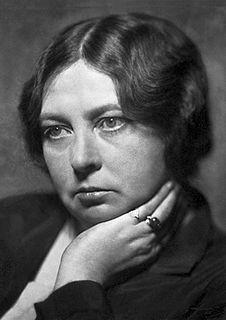A Quote by Philip James Bailey
Dewdrops, Nature's tears, which she Sheds in her own breast for the fair which die. The sun insists on gladness; but at night, When he is gone, poor Nature loves to weep.
Related Quotes
The universal nature has no external space; but the wondrous part of her art is that though she has circumscribed herself, everything which is within her which appears to decay and to grow old and to be useless she changes into herself, and again makes other new things from these very same, so that she requires neither substance from without nor wants a place into which she may cast that which decays. She is content then with her own space, and her own matter, and her own art.
You may command Nature to the extent only in which you are willing to obey her. You cannot intelligently obey that which you do not comprehend. Therefore I also say, ask of Nature that you may be one with her and she will whisper her secrets to you to the extent in which you are prepared to listen. Seek to be alone much to commune with Nature and be thus inspired by her mighty whisperings within your consciousness. Nature is a most jealous god, for she will not whisper her inspiring revelations to you unless you are absolutely alone with her.
The great pulsation of nature beats too in my breast, and when I carol aloud, I am answered by a thousand-fold echo. I hear a thousand nightingales. Spring hath sent them to awaken Earth from her morning slumber, and Earth trembles with ecstasy, her flowers are hymns, which she sings in inspiration to the sun.
Does the open wound in another's breast soften the pain of the gaping wound in our own? Or does the blood which is welling from another man's side staunch that which is pouring from our own? Does the general anguish of our fellow creatures lessen our own private and particular anguish? No, no, each suffers on his own account, each struggles with his own grief, each sheds his own tears.
It may be safely affirmed that there neither is, nor can be, any essential difference between the language of prose and metrical composition.... They both speak by and to the same organs; the bodies in which both of them are clothed may be said to be of the same substance, their affections are kindred, and almost identical, not necessarily differing even in degree; Poetry sheds no tears "such as Angels weep," but natural and human tears; she can boast of no celestial ichor that distinguishes her vital juices from those of prose; the same human blood circulates through the veins of them both.
Again, if the world is destroyed, it must needs either be destroyed according to nature or against nature. Against nature is impossible, for that which is against nature is not stronger than nature. If according to nature, there must be another nature which changes the nature of the world: which does not appear.
Science...has become identified with a philosophy known as materialism or scientific naturalism. This philosophy insists that nature is all there is, or at least the only thing about which we can have any knowledge. It follows that nature had to do its own creating, and that the means of creation must have included any role for God.
Her heart felt as if it were breaking in her breast, bleeding and bleeding, young and fierce. From grief over the warm and ardent love which she had lost and still secretly mourned; from anguished joy over the pale, luminous love which drew her to the farthest boundaries of life on this earth. Through the great darkness that would come, she saw the gleam of another, gentler sun, and she sensed the fragrance of the herbs in the garden at world's end.







































